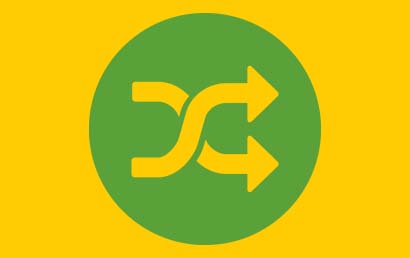More information about POLi
POLi is a popular payment method that has been available to New Zealand and Aussie players since 2006. Using POLi ensures that payments are processed quickly and securely. With this banking method providing convenient payments, it can be found in various online casinos.
Using POLi does not require you to create an account, and the setup is quick and easy. It’s a great payment method for instant transactions at an affordable rate.
How to use POLi
POLi is a payment provider that acts as a middleman between your bank account and the online casino. If you’re using POLi for your online casino deposits, you won’t need to open an account.
You’ll use your online banking account to complete the transactions.
Head to the cashier section at your online casino and choose POLi as your payment option. Enter your online banking username and password to initiate the payment. This is the first option using POLi and is referred to as account-to-account payments.
Then there is the PayID service which is a New Payments Platform initiative. You can link PayID to your bank account of choice, which will enable you to make fast and secure payments.
You can set it up using your phone number or email address. If you choose this payment method for deposits, then you will be given a PayID code upon deposit. You can copy the PayID and then enter it at your online casino of choice to complete the payment.
Fees when using POLi
One thing you should always look for when deciding on your online casino payment method is the fees you may incur during transactions. A big advantage of using POLi is that it doesn’t have any hidden fees. There will always be transparency on the cost of the payments, and no additional fees will be applied.
Most online casinos don’t charge additional fees when you’re using POLi as your banking method. However, it’s recommended to check for possible fees by reading the casino policy.
One thing to take note of is that your bank may charge fees on POLi payments. POLi has a standard rate of 3%, with the maximum account capped at $3. No matter how big your deposit is, the fees will not be more than $3.
Advantages of using POLi
There are many benefits to using POLi as a payment method of choice at NZ-based online casinos. Here is a quick view of the top reasons POLi is popular among casino players.
1. Instant Deposits
With POLi, transactions are processed instantly. This enables you to start playing quickly once your transaction is complete.
2. No Account Registration
Another great benefit of the payment method is that there is no requirement to create an account before you can use the service. You’ll get to use your online banking account details for account-to-account payments and a PayID code for PayID deposits.
3. No Additional Fees
Then there is the bonus of budget-friendly payments, as there are no additional fees charged for using POLi. You can always make cost-efficient deposits using POLi as your payment method.
4. Secure Payments
POLi payments are highly secure. No bank details are stored during the deposit process, and initiating transactions using your bank account, it means there is additional protection on payments via your bank.
5. Supported by Major Banks
A big perk of using POLi is that the payment method is supported by all the major banks in New Zealand. With the payment method being highly popular, the biggest banks support the service with top security measures in place.
Disadvantages of POLi
There are minor disadvantages to using POLi, which may affect your decision. Here are the biggest disadvantages to keep in mind.
1. Not Available for Withdrawals
While POLI is a quick and highly secure payment method for making deposits, it does not allow for withdrawals. Most POLi casinos will have alternative payment methods for withdrawals that are just as efficient.
2. Not Supported by All Banks
It’s important to check if the payment method is supported by your bank. While all the major banks support the payment method, some don’t. Currently, it is big in New Zealand and Australia but not accessible in other markets.






.png)










.png)














.png)







.png)






.png)







.png)
.png)







.png)













(1).png)
.png)




.svg)
.svg)
.svg)
